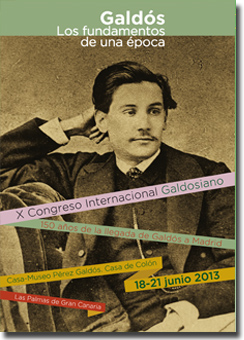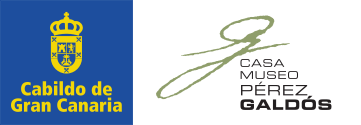GALDÓS FRENTE AL MOVIMIENTO OBRERO. EL MOVIMIENTO OBRERO FRENTE A GALDÓS / GALDÓS AND LABOUR MOVEMENT. LABOUR MOVEMENT AND GALDÓS
Palabras clave:
Movimiento obrero, intelectuales, Socialismo, Anarquismo, Labour movement, intellectuals, Socialism, AnarchismResumen
El paulatino desarrollo industrial, la urbanización de las ciudades y la libertad de asociación impulsaron la consolidación del movimiento obrero en España a finales del xix. Al mismo tiempo, los intelectuales ya habían creado un campo cultural propio, que demostraba su emancipación económica e ideológica. Esta última les permitiría separarse de sus círculos burgueses originales para acercarse a la clase obrera, con quienes pronto buscarían alianzas.
En este contexto, Galdós empieza a hacerse eco cada vez con mayor intensidad de la nueva situación, hasta ubicarse junto al socialismo en 1912. Con el fin de aportar nuevas perspectivas al estudio de la ideología y del pensamiento político galdosianos, en este trabajo se propone el análisis de diferentes momentos en la vida del escritor en los que existe un posicionamiento ante distintos sucesos protagonizados por el movimiento obrero y viceversa.
At the end of the nineteenth century, gradual industrial development, city urbanism and freedom of association drove to the consolidation of the Spanish labour movement. At the same time, intellectuals had created their own field of cultural production, showing their economic and ideological independence. The latter made possible for them to separate from their original bourgeois circles and approach working class, with which they will soon try to form an alliance.
In this context, Galdós started to reflect more and more this new situation, until he positioned next to socialism in 1912. To contribute to new ways in Galdós’ ideology and politic thought studies, we will attempt to analyze several moments in the life of the writer, where we can notice the stance he took on various working class landmarks and vice versa.




